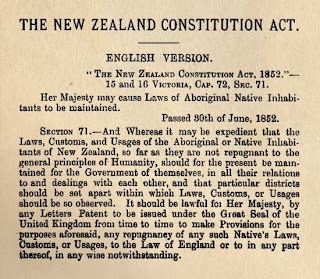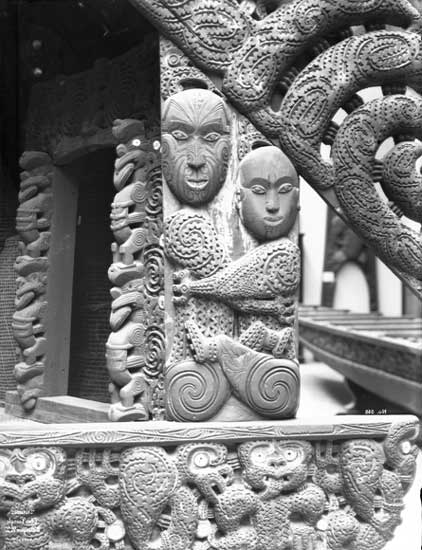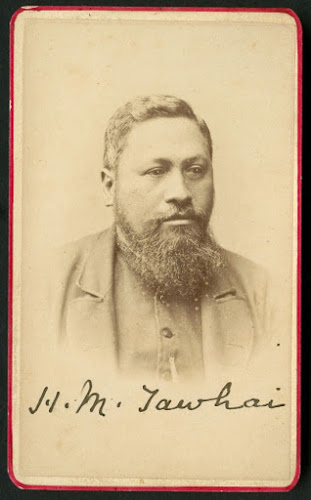'Framed in Forgetfulness?' The New Zealand Constitution Act 1852
This week I gave a paper at the New Zealand Historical Association biennial conference, held at the University of Otago. My paper explored the understandings of British parliamentarians as to the impact of the New Zealand Constitution Act 1852 on Maori communities. Here is the abstract:
Asked to nominate the point at which relations between Maori and Pakeha had really begun to turn sour in the nineteenth century, many historians would likely nominate the passage of the New Zealand Constitution Act 1852. As Chichester Fortescue famously told the House of Commons in 1861, from the time of the 1852 Act the governor had been ‘[o]bliged to act under a Constitution which appeared to have been framed in forgetfulness of the existence of large native tribes within the dominions to which it was intended to apply’. With the benefit of hindsight it is all too easy to assume that ‘absent-minded imperialists’ really had forgotten their obligations to Maori. But a close analysis of British Parliamentary debates on the measure (limited though discussion was with reference to Maori) suggests this was not entirely true. The effect of the 1852 Act was to establish a General Assembly nominally open to all though in practice restricted to Pakeha. But British MPs assumed that some Maori closest to European towns would be eligible to vote under the new constitution. They further assumed that most other Maori would be removed from the General Assembly’s jurisdiction under the section 71 provision enabling ‘native districts’ to be declared. Under these circumstances there would be little real injustice provided both measures (a franchise based exclusively on European land tenure and separate ‘native districts’) were implemented together. The problem, it is suggested, was less that settlers were granted self-government than that a tandem measure which would have effectively delivered a similar outcome for many Maori was not.
 |
| New Zealand Constitution Act (source: teara.govt.nz) |
+++++++



Hello Vincent
ReplyDeleteI note that the NZCPR also claim the 1852 act, and not the Treaty of Waitangi as the founding document of NZ.
Your thoughts?
What constitutional rights do Maori have today
ReplyDelete